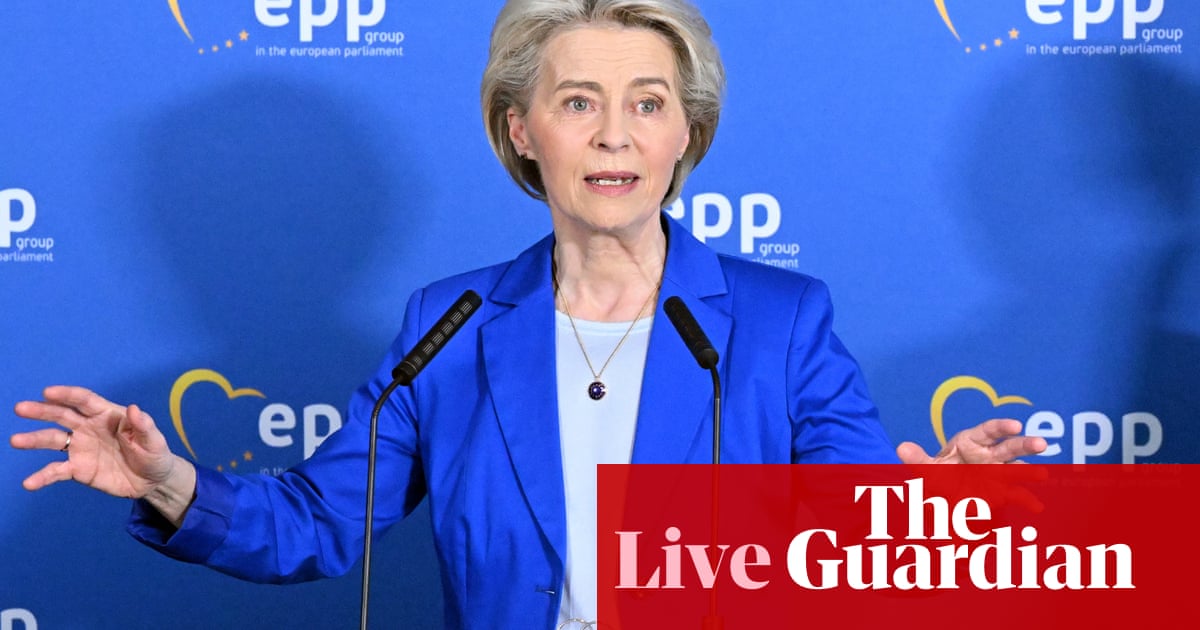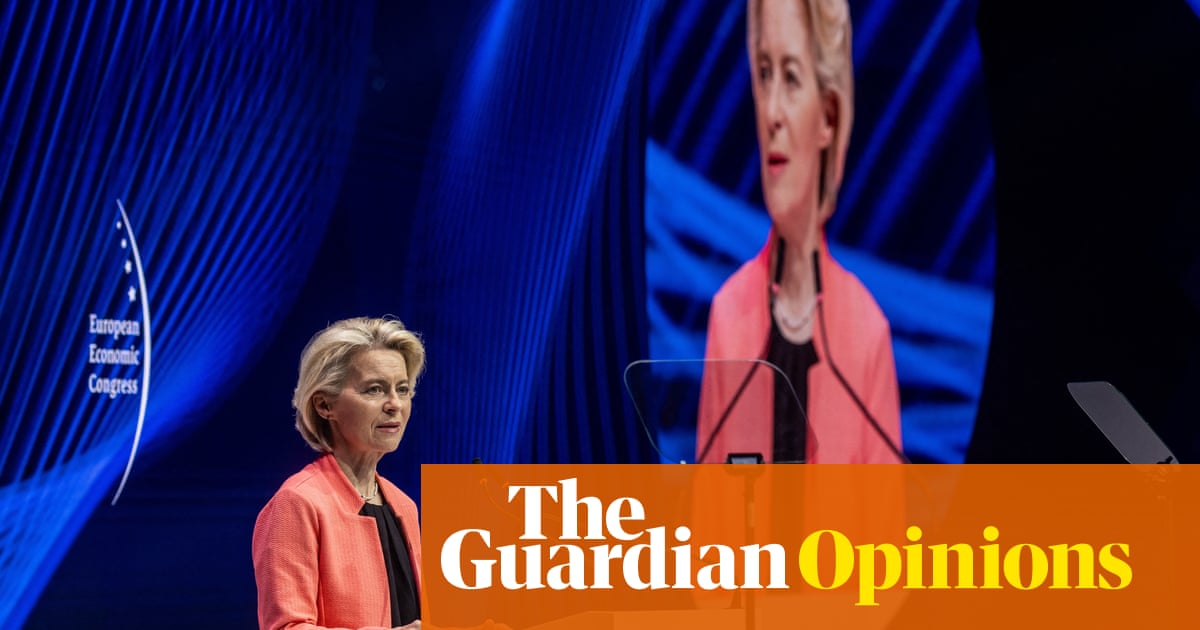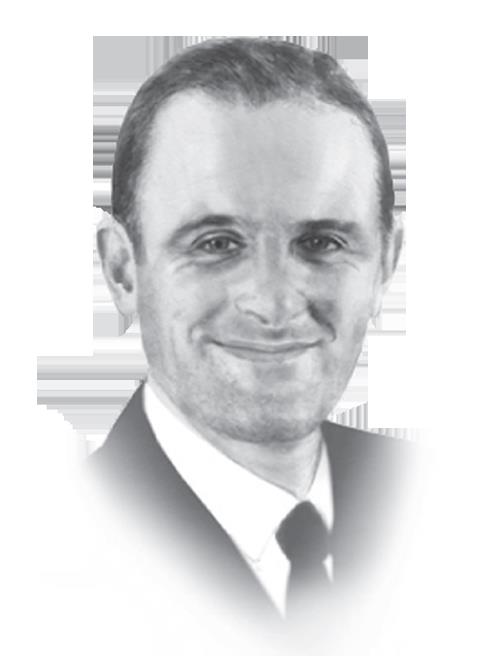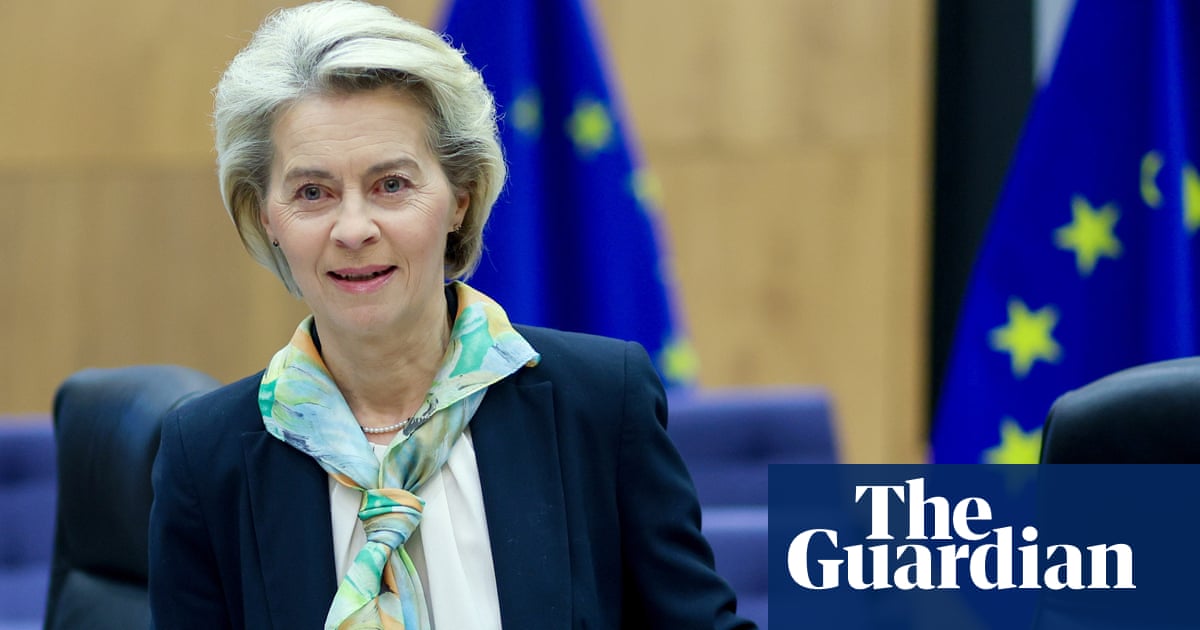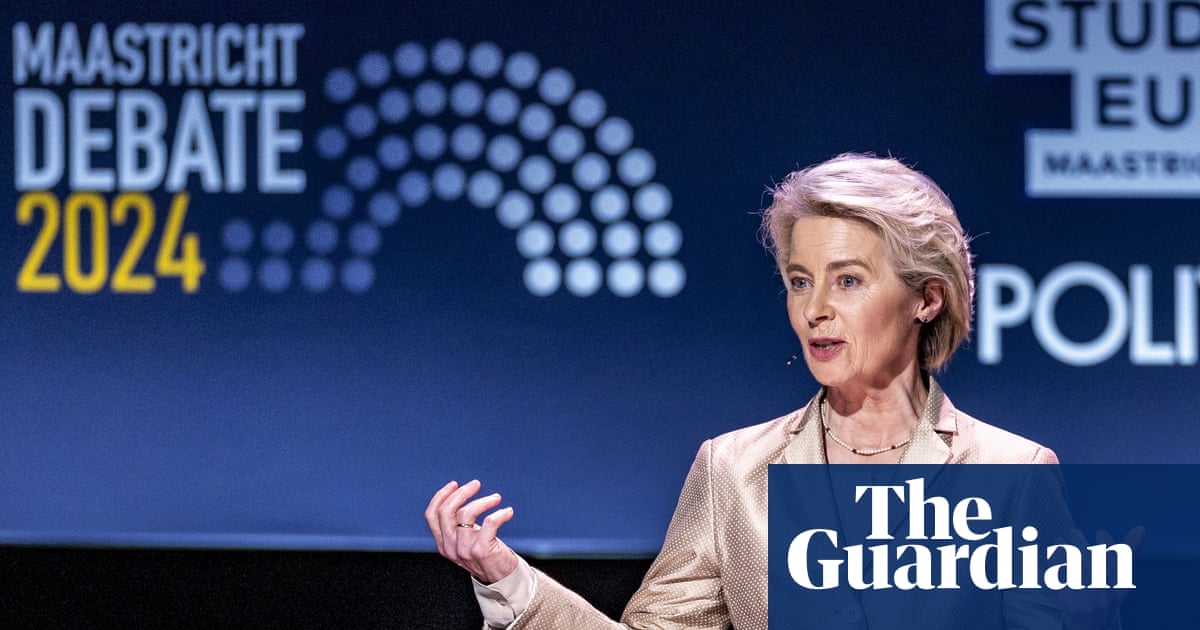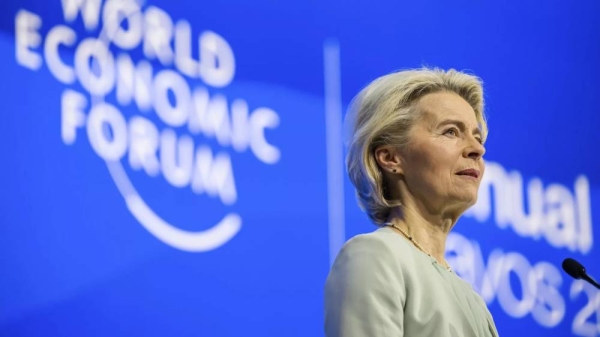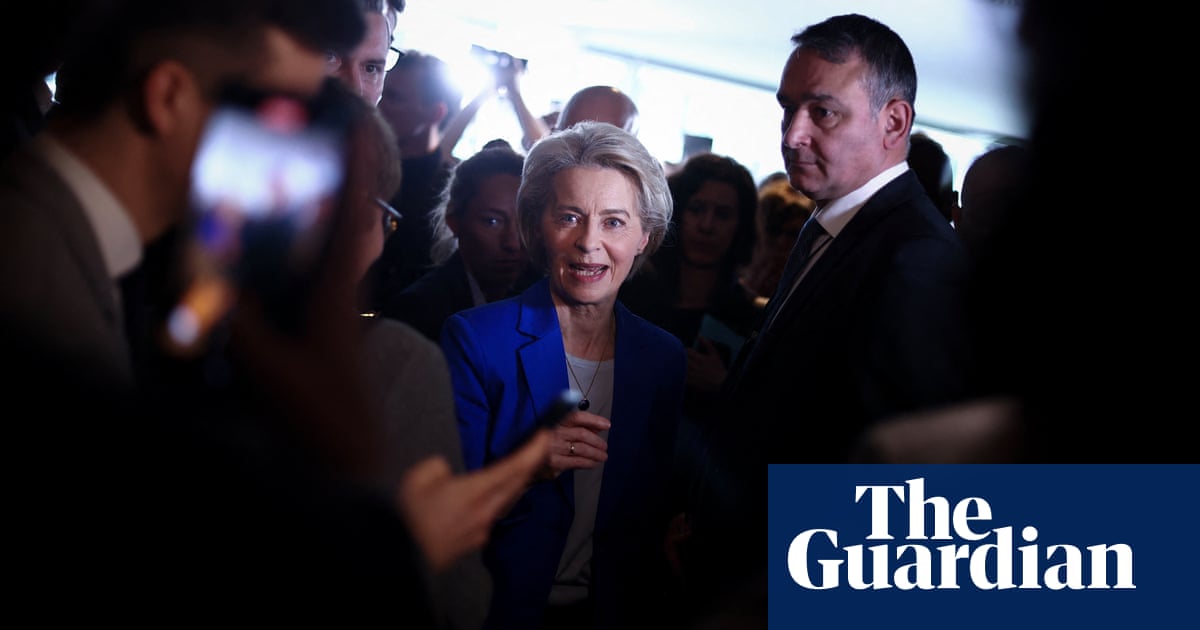
The chief of the European Commission has vowed to never work with extremist parties such as the far-right Alternative für Deutschland, no matter how big a vote they get in the European elections in June.
Ursula von der Leyen, officially launching her campaign for a second term in Brussels’s top job against a backdrop of rising concern over security and Russia, said on Wednesday she would only work with “pro-European, pro-Nato, pro-Ukrainian, clear supporters of our democratic values”.
There was no place in a democratic Europe, she said, for “Putin’s friends” – a position she said would still stand even if those parties performed well in the European parliament elections.
Polls have predicted that extremist and populist parties will make significant gains in countries including Germany, France and Italy, raising the prospect that the far right could become a permanent roadblock in the next five-year mandate for the parliament.
Von der Leyen and Manfred Weber, the leader of the European People’s party (EPP), a group of centre-right parties in the parliament, said that no matter how big the challenge those parties would never be allowed to become power-brokers.
Von der Leyen said: “Every European election brings a change in the composition of different political parties and different political views [in the parliament], so the content counts.
“Those who are defending democracy against the Eurosceptics, and those who are defending our values against Putin’s friends, these are the ones with which I want to work.”
She made the comments as two prominent figures on the far right in Germany and Italy underlined their notably warmer approach to the Kremlin. Tino Chrupulla, the head of Germany’s AfD party, said he found the extent to which Vladimir Putin had been blamed for the death of the opposition leader Alexei Navalny as “unbearable”.
“People are speaking about ‘murder’, and other things, even though nothing is known, even though there has not even been an investigation yet,” he said in Berlin.
In Italy, Matteo Salvini, the deputy prime minister and the leader of the far-right League party, echoed some of his comments, saying it was “up to Russian doctors and judges” to determine the cause of Navalny’s death in a penal colony close to the Arctic Circle.
In response, Josep Borrell, the EU’s foreign policy chief, highlighted a joint declaration from member states, including Italy, assigning responsibility for Navalny’s death to Putin and Russian officials. Borrell emphasised the significance of government-approved statements and urged officials to align with their country’s official positions.
Unease over the war in Ukraine, an increasingly unpredictable Putin and a potential return to the White House for Donald Trump have combined to make Europe nervous. Von der Leyen said that defence, as well as the protection of jobs in the EU, would be her top priority if re-elected president of the commission.
Weber pledged to prioritise the bolstering of European defence in the face of the Russian threat in the next term of the European parliament.
Going further than other EU politicians, he said it was time for Europe to stand on its own two feet and not rely on the US. “In the long run, 330 million or 340 million Americans will not defend 400 million Europeans. So we have to take over our responsibility. That is the main message of today,” he said.
He will be backing the creation of a new defence portfolio with its own commissioner in Brussels.
Polls predicting electoral gains for the AfD, Marine Le Pen’s National Rally, Vox in Spain, and Reconquest in France were a big concern for all, he added.
“We have now polls Europe-wide which are quite worrisome, because those who are the parties who are campaigning against you, or who are the friends of Putin are getting stronger and stronger, and that is extremely worrisome for us,” he said.




